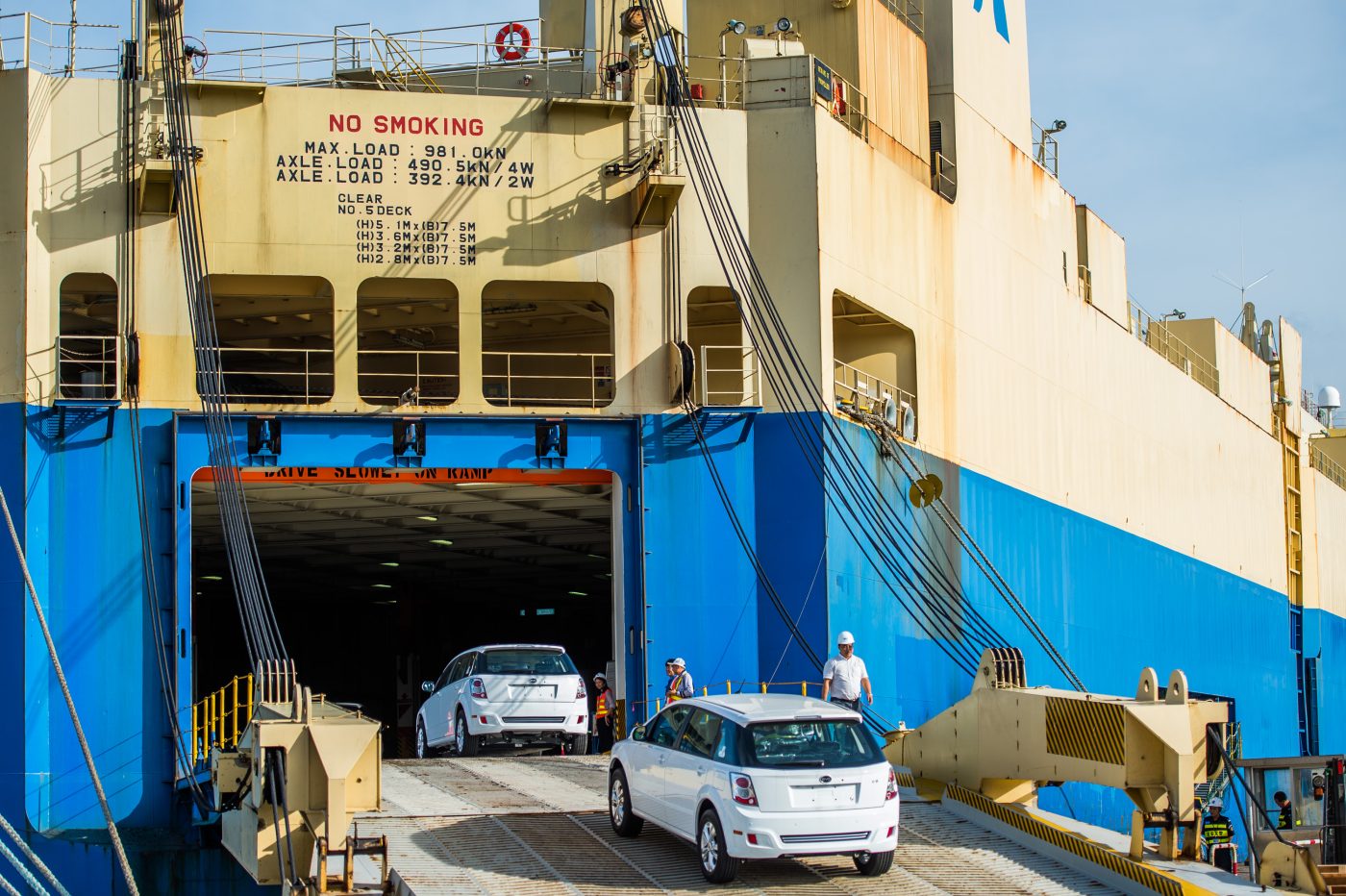For decades, the US and Europe promoted free trade. Today, both are embracing protectionism.
The Inflation Reduction Act’s $369 billion tax credits require electric vehicles to rely on US-sourced components and US assembly. European green and tech sovereignty measures discriminate against non-European companies.
Start with the Carbon Border Adjustment Mechanism — CBAM in EU-speak. It aims to combat “carbon leakage,” the process by which European companies shift their dirty carbon-generating production outside of the bloc. That’s a worthy cause. Under the bloc’s Fit for 55 package, the EU aims to reduce its greenhouse gas by more than half of 1990 levels by 2030.
CBAM will oblige non-European steel, aluminum, and cement producers to account for and pay a fee for their products’ carbon intensity. In addition to the bureaucratic burden, the plan arguably breaks World Trade Organization (WTO) rules “by treating foreign-produced goods differently and by affording protection for domestic industry by subjecting foreign products to an import tariff.”
Does this sound familiar? It echoes European complaints about the US’s IRA, another project designed to combat climate change.
Other European policies, often with sensible goals, veer into protectionism. A new Foreign Subsidies Regulation, designed to combat Chinese companies wielding public subsidies to gain an unfair advantage, makes it difficult for foreign firms to operate in Europe, including those from the US.
Europe’s proposed Cloud Certification Scheme aims to boost cybersecurity by issuing best-in-practice cloud certificates. That’s a good goal. But the scheme contains secondary effects, discriminating making it difficult to use non-EU cloud providers and store data outside of Europe.
Tech protectionism is costly. Economists estimate that EU cybersecurity restrictions would allow Washington to impose retaliatory tariffs of up to $12 billion. Another study calculates that the entire EU digital sovereignty agenda — including the Digital Markets, the Data, and the AI Acts — could block $18 billion of American services exports.
It’s imperative for the US and Europe to back away from protectionism. The Biden Administration took a positive step recently by giving EU producers of critical minerals access to the US market. It could and should do more to extend free trade to allies.
So far, however, the EU has not reciprocated. It is continuing to move forward with its slew of distorting tech measures.
The Biden Administration has refrained from public criticism. That’s a mistake. Washington needs to wake up and speak out. The Administration needs to offer an alternative to counterproductive European efforts to impose protectionist cybersecurity certification schemes. Data localization must be banned, or at least limited. It’s both uneconomical and dangerous to insist on storing data in a single country. Ukraine beat back a massive Russian cyber offensive by dispersing its crucial services and data in the cloud, around the globe.
Digital protectionism needs to be countered in a strong transatlantic alliance. Yet the US has crippled the WTO, refusing to appoint judges in 2018. Instead, the WTO needs to be reinforced. It is the right place to challenge China, Turkey, and others — including India — to keep bits and bytes flowing across borders. Already, 88 WTO members are conducting negotiations on trade-related aspects of electronic commerce. Australia, Japan, and Singapore are the co-convenors — the US should push this important agenda forward.
President Biden wants to repair the security relations severed by the Trump Administration’s destructive isolationism. Supporting Ukraine represents the preeminent transatlantic priority. But before it is too late, the president should engage Europe on digital protectionism.
Bill Echikson edits CEPA’s online tech policy journal, Bandwidth. Based in Brussels, he was a longtime foreign correspondent for the Christian Science Monitor, BusinessWeek, and the Wall Street Journal. He worked at Google from 2008-2015.
Bandwidth is CEPA’s online journal dedicated to advancing transatlantic cooperation on tech policy. All opinions are those of the author and do not necessarily represent the position or views of the institutions they represent or the Center for European Policy Analysis.





